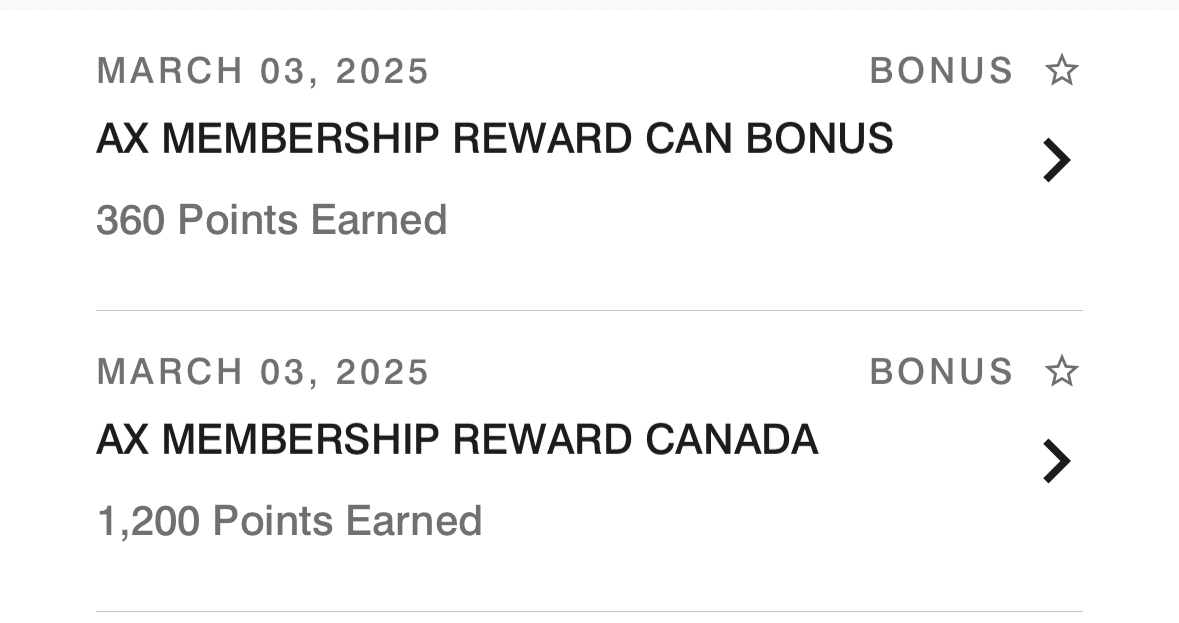Earlier this year, American Express Canada launched a 30% transfer bonus events from American Express Membership Rewards (MR) points to Marriott Bonvoy for the first time in 2025.
If you have reason to transfer Amex MR points to Marriott Bonvoy, this could be a great opportunity to squeeze some extra value out of your points to book aspirational hotels, or to transfer points to airline programs.
As a reminder, the promotion runs through to April 30, 2025, which leaves a bit of time to consider if it’s worth taking advantage of.
Amex Membership Rewards 30% Transfer Bonus to Marriott Bonvoy
For the first time in 2025, American Express has launched a 30% transfer bonus when you convert your Membership Rewards points to Marriott Bonvoy points.
As a reminder, the standard transfer rate from Canadian-issued American Express Membership Rewards to Marriott Bonvoy is 1:1.2. In other words, for every 1,000 MR points transferred, you’d receive 1,200 Marriott Bonvoy points.
On the American Express website, this is the rate displayed when you go to initiate a transfer, even during the current transfer bonus event.

However, when the points arrive in your Marriott Bonvoy account, you’ll notice that they come in two chunks: 1,200 points (as expected with the standard transfer bonus), as well as 360 points (from the 30% transfer bonus).


With a 30% bonus, this transfer rate has been bumped up to an effective 1:1.56 ratio: every 1,000 MR points will earn you 1,560 Marriott Bonvoy points.
Transfers to Marriott Bonvoy are officially slated to take two business days to complete; however, in practise it happens almost instantly.
As always, the name and address should match between your Amex MR and Marriott Bonvoy accounts to prevent any unwanted delays.
Keep in mind that Marriott Bonvoy members can send up to 100,000 points per calendar year to another member, and can receive up to 500,000 points per calendar year cumulatively from other members.


Is Transferring Amex Membership Rewards to Marriott Bonvoy a Good Deal?
Converting Amex Membership Rewards points into Marriott Bonvoy points represents one of the many potential valuable uses, although even with the 30% transfer bonus in play, it may not necessarily be the best use of MR points speaking strictly from value in cents per point.
That’s because MR points can be transferred to airline frequent flyer programs as well (notably Aeroplan or The British Airways Club at a 1:1 ratio, or Air France KLM Flying Blue and Cathay Pacific Asia Miles at a 1:0.75 ratio), which typically provide better value when redeemed for flights in premium cabins when compared to the average hotel redemption via Marriott Bonvoy.
However, if you’ve already got enough points to cover your flights, then transferring to Marriott Bonvoy would certainly be a compelling next-best use case, especially if you need to top up your account for an aspirational redemption.
American Express Cobalt Card
Welcome Bonus
15,000 MR points
Annual Fee
$156
First-Year Value
$372
In terms of the best credit card to use for maximizing this promotion, the American Express Cobalt Card is most well-known for its ability to earn 5 MR points per dollar spent on food and drinks, including dining, groceries, and food delivery.
With the 30% transfer bonus in place, you can effectively earn 7.8 Marriott Bonvoy points per dollar spent on all purchases in the food and drinks category.
Again, though, you’ll want to carefully consider the value proposition between the hotel side (with Marriott Bonvoy) and the airline side (with Aeroplan, The British Airways Club, Air France KLM Flying Blue, Cathay Pacific Asia Miles, and others).
Generally speaking, you can extract much higher value from your points by booking premium flights rather than hotels. However, in reality, you probably need to book both when you embark on a trip.
It therefore really boils down to individual preferences as to whether to allocate some points for hotels in addition to flights, or to save everything for the air travel side.
Consider Transferring Marriott Bonvoy Points to Airline Partners
Even if you’re intent on redeeming your Amex MR points for high-value flights, a Marriott Bonvoy transfer with the 30% bonus in play could still be an optimal strategy.
That’s because you can transfer Marriott Bonvoy points to most of the 39 airline partners at the optimal rate of 60,000 Marriott Bonvoy points = 25,000 airline miles.
With the elevated 1:1.56 transfer rate from Amex MR, this opens up many more doors in terms of using your Canadian-issued Amex MR points to access a far greater range of frequent flyer programs than usual.
Remember that the optimal transfer rate takes effect in chunks of 60,000 Marriott Bonvoy points, which gives us the following rate during the upcoming period:
38,462 Amex MR points = 60,000 Marriott Bonvoy points = 25,000 airline miles
Almost every frequent flyer program worth its salt is a partner of Marriott – and can therefore be accessed at an effective rate of 38,462 MR points = 25,000 miles, as seen above.
As before, MR points will be the most compelling transfer candidate if you have any to spare, but even if you’re sitting on regular MR points, this very favourable effective transfer rate is still worth considering if you have your eye on any of the award chart sweet spots out there that might usually be harder to access.
Conclusion
American Express has launched another 30% transfer bonus from Amex MR to Marriott Bonvoy, which will entice some of us to convert our MR points over to the world’s largest hotel loyalty program.
Others may decide to keep their Membership Rewards points for flight redemptions — for them, the 30% transfer bonus on the hotel side would be merely a nice backup option.
If you fall in the latter camp, keep in mind that not only will there be excellent value in redeeming for free hotel nights, but Marriott Bonvoy’s 39 airline transfer partners also greatly expand the possibilities for redeeming MR points towards amazing flight experiences as well.
This story originally appeared on princeoftravel

